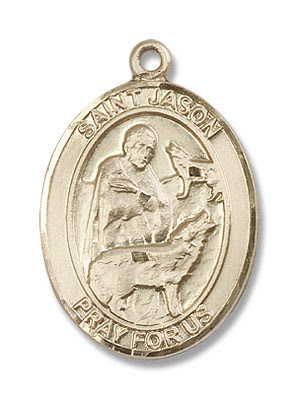Information, History, Culture, Traditions, Scriptures, Interpretations, and Metaphysics of the Maccabees
Tuesday, November 30, 2010
The Maccabee - The Working-Class Hands of the LORD God
In several ways, modern man seems to have overlooked, or perhaps forgotten, many obvious, yet vitally important parts of the Bible. This is most especially the case when it comes to the very first one or two pages. Indeed, one of the strangest aspects to the beginning of the Book of Genesis is how the author Moses immediately introduces an omnipotent entity called God, Elohim in Hebrew, who quickly goes to work creating the Heavens and the Earth and all the living plants and animals in around seven days by using His mere words alone, but then changes the subject entirely in the very next chapter and suddenly introduces a completely different entity known as the LORD God, or Adonai in Hebrew.
As the Bible states, this particular Divine Being seems to find Himself in the dark void that had existed before Creation and notices that the water is rising up from the depths of the Abyss, perhaps threateningly. Then, like a creative child who desires to impress His even more creative Father, the LORD God makes His own version of a man from the pre-existing clay, dirt, and water, by using His own hands, similar to what a working-class craftsman would do, and endows the little creature with an immortal soul, calling him Adam. He carefully places His new creation in a garden on Earth, called Eden, which He has carefully cultivated and organized, once again just like a working-class male quietly working in His own tiny back-yard who gets His hands dirty for a living, rather than some uppity, elitist sorcerer who can create with His mere words alone.
Reading Scriptures closely enough, one notices that, except for the Tree of Life and the Tree of Knowledge of Good and Evil, the other plants and trees in the 'Garden' are not really His personal creation. Obviously, the LORD God (Adonai) must have taken them from the surrounding wilderness that God had already created out of nothing using only the power of His words. Later, like a talented sculptor, the LORD God once again uses His hands to create different animals from the already existing water, dirt and clay and then has the man Adam personally name these new creations separately, like an expert Zoology professor teaching His young graduate student how to designate and classify new species.
Unlike God who, in the beginning, created life from just words and without any 'profane' use of the hands, the LORD God apparently uses His hands quite often and with skilled craftsmanship. Also, like a professional surgeon and match-maker, the LORD (Adonai) goes on to carefully remove a rib bone from Adam, stitches up the wound, and then creates a female companion for him named Eve. Put bluntly, the LORD God may not be an omnipotent Creator like God who needs only seven days to finish anything and everything, but He is obviously very skilled at using His Hands in a variety of ways.
When I’m out walking, I strut my stuff yeah I’m so strung out. I’m high
as a kite I just might stop to check you out. Let me go on like I blister in
the sun. Let me go on Big Hands I know you’re the one.
- Blister in the Sun, by the Violent Femmes
Throughout the centuries, some Biblical scholars, starting with the Gnostics, the Manicheans, and other protesting dissenters, have come to some very strange, perhaps even deceitful, conclusions about God, who created everything using only His voice, and about the LORD God, who sculpted and formed the first man and woman, tended their beloved 'Garden', and performed medical surgery using His own two hands to perform these tasks. Because of these innate differences, some have apparently decided that the LORD God (Adonai), the 'Jewish' God, must be an insane impostor god, a Devil, who is keeping us from discovering the higher, one, true God that created all life through His words in just six days. Nothing could be further from the truth.
Indeed, the LORD God’s talented use of His hands is similar to the way mankind differs from any of the other animals. Put specifically, and scientifically speaking, it is mankind (Homo Sapiens) alone that has learned to use his or her hands to manipulate objects with ever increasing precision in order to create various types of useful, material inventions. Reading Genesis carefully enough, the LORD God’s original hand-made designs of man, woman, and all the animals, which have truly become a part of God's seven day creation, clearly indicate He has been a master-craftsman from the very beginning of creation. Likewise, and ever since Adam and Eve, mankind has been kept busy as His various apprentices and assistant journeymen along the way.
As it clearly states in Genesis, God, called El or Elohim in Hebrew, does indeed create man in His own image, but does not even bother to give any of them names or help them to survive the wild and feed themselves. In stark contrast, the LORD God, known simply as Adonai, creates only one man with His own two hands, calls him Adam, and endows him with an immortal soul (a ghost) that survives biological death, taking care to give him healthy food and produce from the Garden so that he never goes hungry. Then, like a good, loving father, the LORD even becomes worried that His single male creation might be lonely and need a suitable partner, almost as if the LORD God Himself had also known personally what it was like to day-dream and long for some Divine female companionship and heterosexual love.
As most readers of the Bible already know, the LORD God also specifically instructs Adam and Eve not to eat from the two special trees in the middle of His garden called Eden. He gives them no other commandment at all. Tragically, the wise and evil serpent almost immediately seduces them both into disobedience and wicked behavior, causing the LORD to become curious and then enraged, much like a cautious master-craftsman who suddenly finds that His apprentice, along with his new girl, has just managed to ruin and destroy everything by disobeying the only commandment that the LORD God had given him.
Using the fossil records left from past ages as indications, scientists now assume that huge reptiles called dinosaurs were the first life-forms before any mammals, including man, came into existence. Keep in mind that serpents are also reptiles which are directly related to the dinosaurs. Now in terms of scientific speculation, there seems to be a distinct possibility that some highly-advanced reptile humanoids from the distant past may have managed to develop dinosaurs on earth, but eventually proved completely incapable of ever making them intelligent and self-aware, even though they had hundreds of millions of years to do so. In distinct contrast, the LORD God made man evolve quite rapidly in less than a few million. The Jewish Babylonian Talmud states the following:
The higher the position the greater is the fall, and this applies to the
serpent, who, not only was the chief of all animals, but walked upright
like man, and when it fell it sank into the reptile world.
- Genesis Rabba 19
In contrast, the LORD God’s hand-crafted, warm-blooded, mammalian creation known as mankind eventually succeeded in prospering and advancing very fast, as history has indeed shown, just as the cold-blooded, and clearly evil, serpent’s feeble attempts at evolution, which only created extremely stupid dinosaurs, failed miserably.
In truth, man’s slow, but steady progress out of the Neanderthal caves of yesteryear is mainly due to the LORD God’s continued love and attention for His creation. Basically, the God (El) who creates biological life by words alone still tends to remain the unknowable, even the unthinkable, while the highly-skilled craftsman known as the LORD God (Adonai), who creates immortal souls (ghosts) with His own two hands, has probably been the true source of our intellectual and societal advancement for thousands of years. Obviously, the LORD God of the Holy Bible is a male immortal with hands and feet just like mankind and may have even been married to a female goddess sometime before, but is now alone and extremely preoccupied with caring for all the men and women of planet Earth. Indeed, it is the LORD God (Adonai), the Father of man, the God of nature, who is endowed with a distinct, individual personality as seen and realized throughout the entire Holy Bible. It is Him alone, and not the wicked, cunning serpent and father of the failed dinosaurs, who has been the hidden intelligence guiding Jews, Christians, and Muslims towards a glorious and beautiful future that still lies ahead.
May the LORD God bless you in the name of St. Judas Maccabaeus.
Monday, November 15, 2010
Saint Jason
St. Jason Basic Facts
DISCIPLE: Considered as one of the 72 Disciples of Joshua the Messiah (Jesus Christ)
PATRON SAINT: St. Jason is the Patron Saint of Converts
BIBLE: Acts 17:5-9, Romans 16:21
HOLY DAY: July 12 (Catholic), April 28 (Eastern Orthodox), also Janurary 4 (Orthodox)
MARTYDOM: Torn apart by wild animals
Bible Passages of Saint Jason
Timothy my fellow worker greets you, and so do Lucius and Jason and Sosipater, my kinsmen.
- Romans 16:21
Now when they had traveled through Amphipolis and Apollonia, they came to Thessalonica, where there was a synagogue of the Jews. And according to Paul's custom, he went to them, and for three Sabbaths reasoned with them from the Scriptures, explaining and giving evidence that the Christ had to suffer and rise again from the dead, and saying, 'This Jesus whom I am proclaiming to you is the Christ.'
And some of them were persuaded and joined Paul and Silas, along with a large number of the God-fearing Greeks and a number of the leading women. But the Jews, becoming jealous and taking along some wicked men from the market place, formed a mob and set the city in an uproar and attacked the House of Jason seeking to bring them out to the people. When they did not find them, they began dragging Jason and some brethren before the city authorities, shouting, 'These men who have upset the world have come here also, and Jason has welcomed them, and they all act contrary to the decrees of Caesar, saying that there is another king, Jesus.' They stirred up the crowd and the city authorities who heard these things. And when they had received a pledge from Jason and the others, they released them.
- Acts 17:1-8
Prayer in honor of St. Jason
O heavenly Jason, in whose name I glory,
Pray ever to God for me,
Strengthen me in my faith,
Establish me in virtue.
Guard me in the conflict
That I may vanquish the foe malign and attain to glory everlasting.
Amen.
- An Indulgence of 300 days
Kontakion in the Plagal of the Second Tone
Being illuminated with the teachings of Paul, ye became luminaries unto the whole world, O thrice-blessed ones; for ye ever shine upon the world with miracles, O Jason, thou fountain of healings, and Sosipater, thou glory of the Martyrs of Christ. O God-bearing Apostles, ye protectors of them that be in need, entreat God that our souls be saved.
Notes from other Sources on Saint Jason
Profile
Acts 17:5-9 says that Saint Paul stayed at Jason's home in Thessalonica, and he is mentioned in Romans 16:21. Legend says he was bishop of Tarsus in Cilicia, and evangelized the Greek island of Corfu. While imprisoned for preaching the faith, he helped convert the Martyrs of Corfu.
Jason of Tarsus
Jason of Tarsus is numbered among the Seventy Disciples. Jason appears in the Bible in Acts 17. His house is used as a refuge by Paul, Silas, and Timothy in Thessalonica. Jason was arrested when the authorities could locate neither Paul nor Silas, and was made to post bail. He was not reimbursed.
Jason is also mentioned in Romans 16:21. Jason is venerated as a saint in Catholic and Orthodox traditions. His feast day is July 12 (Catholic) and April 28 (Orthodox). His feast is celebrated on 3 Pashons in the Coptic Orthodox Church and on January 4 among the Seventy.
Life
Born in Tarsus, he was appointed Bishop of Tarsus by the Apostle Paul. With the Apostle Sosipater he traveled to the island of Corfu where they built a church in honor of the Apostle Stephen the Protomartyr and converted many pagans to the Christian faith. Seeing this, the king of Corfu threw them into prison where they converted seven other prisoners to the Christian faith: Saturninus, Jakischolus, Faustianus, Januarius, Marsalius, Euphrasius and Mammius. The king had those seven put to death for their faith in boiling pitch.
The king's daughter, the virgin Cercyra, having watched these holy apostles being tortured and turned to the Christian faith, distributed all her jewels to the poor. The king became angry and put her in prison, yet she would not deny Christ. So he had the prison burned, but she remained unharmed. Many people were baptized upon seeing this miracle. He then had her killed with arrows while tied to a tree.
Many believers fled to a nearby island to get away from the enraged king, but as he chased them his boat sank. The new king embraced the Christian faith and in baptism received the name Sebastian. From then on Sosipater and Jason freely preached the Gospel and built up the Church in Corfu until a very old age, when they gave up their souls to God.
- Wikipedia
Introduction to Saint Jason
While on his second missionary journey, St. Paul stayed at Salonika, in the house of one, Jason. In consequence of Paul's successful preaching, the Jews, "moved with envy and taking unto them some wicked men of the vulgar sort, and making a tumult, set the city in an uproar; and besetting Jason's house, sought to bring them out unto the people. And not finding them, they drew Jason and certain brethren to the rulers of the city, crying, 'They that set the city in an uproar are come hither also, whom Jason hath received. And these all do contrary to the decrees of Caesar, saying that there is another king, Jesus.' And they stirred up the people and the rulers of the city, hearing these things. And having taken satisfaction of Jason and of the rest, they let them go". This is probably the Jason referred to with Lucius and Sosipater as the kinsmen of St. Paul in his letter to the Romans, and in the Greek legend he is represented as bishop of Tarsus in Silicia, going with St. Sosipater, bishop of Iconium, to Corfu, evangelizing that Island, and dying there. After preaching successfully for some time, the two missionaries were thrown into prison, where they converted seven thieves who afterward achieved martyrdom. The Syrians, however, venerate Jason as the apostle of the district round Apanea and as a martyr who was thrown to the beasts. The Roman Martyrology wrongly identifies him with the Mnason of Acts xxi 16, "an old disciple" with whom St. Paul was to lodge in Jerusalem, and makes Cyprus the place of his death as well as of his birth. His feast day is July 12.
- Saint Jason, Catholic Online
Troparion and Kontakion, Commemorated on January 4
The Apostle Jason was from Tarsus (Asia Minor). He was the first Christian in the city. The Apostle Sosipater was a native of Patra, Achaia. He is thought to be the same Sosipater mentioned in Acts 20:4. They both became disciples of St Paul, who even called them his kinsmen (Rom 16:21). St John Chrysostom (Homily 32 on Romans) says that this is the same Jason who is mentioned in Acts 17:5-9. St Jason was made bishop in his native city of Tarsus, and St Sosipater in Iconium. They traveled west preaching the Gospel, and in 63 they reached the island of Kerkyra [Korfu] in the Ionian Sea near Greece.
There they built a church in the name of the Protomartyr Stephen and they baptized many. The governor of the island learned on this and locked them up in prison, where they met seven thieves: Saturninus, Iakischolus, Faustianus, Januarius, Marsalius, Euphrasius and Mammius. The Apostles converted them to Christ. For their confession of Christ, the seven prisoners died as martyrs in a cauldron of molten tar, wax and sulfur.
The prison guard, after witnessing their martyrdom, declared himself a Christian. For this they cut off his left hand, then both feet and finally his head. The governor ordered the Apostles Jason and Sosipater to be whipped and again locked up in prison.
When the daughter of the governor of Kerkyra (Korfu), the maiden Kerkyra, learned how Christians were suffering for Christ, she declared herself a Christian and gave away all her finery to the poor. The infuriated governor attempted to persuade his daughter to deny Christ, but St Kerkyra stood firm against both persuasion and threats. Then the enraged father devised a terrible punishment for his daughter: he gave orders that she be placed in a prison cell with the robber and murderer Murinus, so that he might defile the betrothed of Christ
But when the robber approached the door of the prison cell, a bear attacked him. St Kerkyra heard the noise and she drove off the beast in the name of Christ. Then, by her prayers, she healed the wounds of Murinus. Then St Kerkyra enlightened him with the faith of Christ, and St Murinus declared himself a Christian and was executed.
The governor gave orders to burn down the prison, but the holy virgin remained alive. Then on her enraged father's order, she was suspended upon a tree, choked with bitter smoke and shot with arrows. After her death, the governor decided to execute all the Christians on the island of Kerkyra. The Martyrs Zeno, Eusebius, Neon and Vitalis, after being enlightened by Sts Jason and Sosipater, were burned alive.
The inhabitants of Kerkyra, escaping from the persecution, crossed to an adjoining island. The governor set sail with a detachment of soldiers, but was swallowed up by the waves. The governor succeeding him gave orders to throw the Apostles Jason and Sosipater into a cauldron of boiling tar. When he beheld them unharmed, he cried out with tears, "O God of Jason and Sosipater, have mercy on me!"
Having been set free, the Apostles baptized the governor and gave him the name Sebastian. With his help, the Apostles Jason and Sosipater built several churches on the island, and increased the flock of Christ by their fervent preaching. They lived there until they reached old age.
- Troparion and Kontakion
Jason & Sosipater the Apostles of the 70 & their Companions: Commemorated on April 28
Apostle Jason, of the Seventy and those with him: Commemorated on April 28
Reading
Both of these Saints were disciples of the Apostle Paul, who mentions them in his Epistle to the Romans, saying: "Jason and Sosipater my kinsmen greet you" (16:21). Jason was from Tarsus of Cilicia, and became bishop there. Sosipater was from Patras of Achaia, and became Bishop of Iconium. When they had shepherded their churches well for a long time, they departed west that they might profit others also, and arrived finally at the island of Corfu, where they were the first to preach the Gospel to its people. They suffered many things for Christ's Name, drew many souls to salvation, and finished the course of their life there. In the ancient city of Corfu, a church from the first centuries, built in their honour and bearing inscriptions that mention the Saints by name, verifies the historical account concerning them.
Jason: he that will cure, the host of Paul and Silas in Thessalonica. The Jews assaulted his house in order to seize Paul, but failing to find him, they dragged Jason before the ruler of the city (Acts 17:5-9). He was apparently one of the kinsmen of Paul (Romans 16:21), and accompanied him from Thessalonica to Corinth.
Q: Where in the Bible does the name Jason appear
A: Acts 17:5-9 and Romans 16:21. It appears that both references are to the same man.
- WikiAnswers.com
Ikons of Saint Jason
The Bishop of Tarsus, Saint Jason
A convert to Christianity himself, he continued to preach and convert others as a companion of the apostle
Paul until his unnatural death; martyred by being thrown to "wild beasts."
Saint Jason, Holy Monastery Dormition of Theotokos, Parnitha
______________________________________________________
Ikons from the Greco-Roman Pagan Legends of Jason
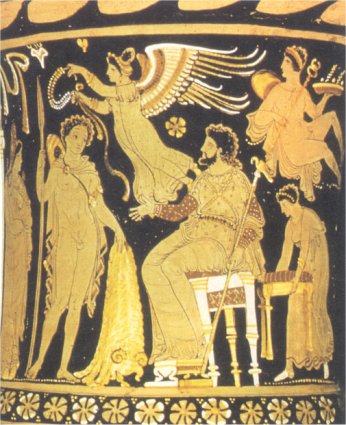
(Paris, The Louvre) Apulian Krater, 350-340 B.C.
With the golden fleece in hand, Jason returns to Iolkos and is received by Pelias.
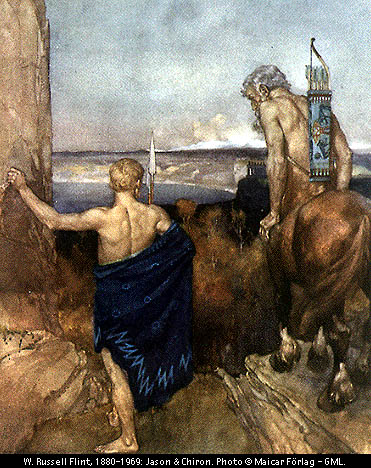
Jason and the Centaur Chiron, W. Russell Flint, 1880-1969
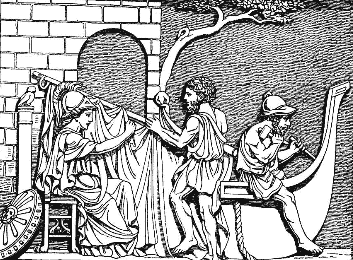
Argus building Jason's ship, the Argo
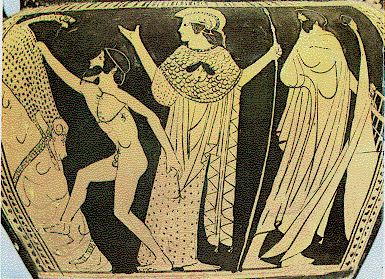
(New York Metropolitan Museum) Pot-painting 5th c. B.C
Jason snatches the Golden Fleece.
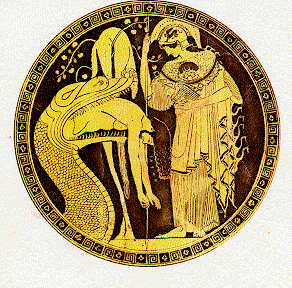
(Vatican Museum) Pot-painting 5th c. B.C
Jason coming out of the Dragon's mouth with Athena's protection.
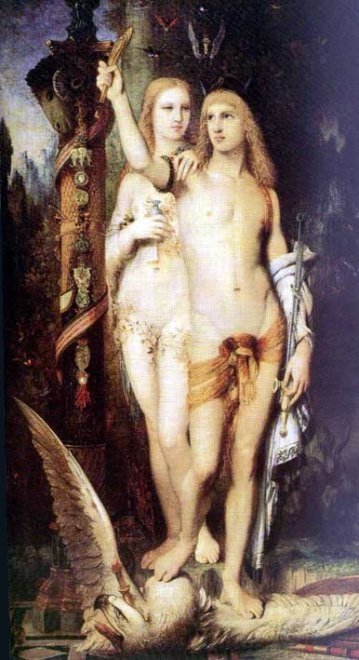
Jason and Medea
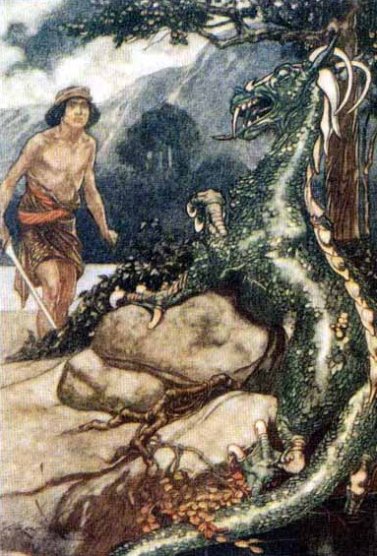
Dragon guarding the Golden Fleece and Jason
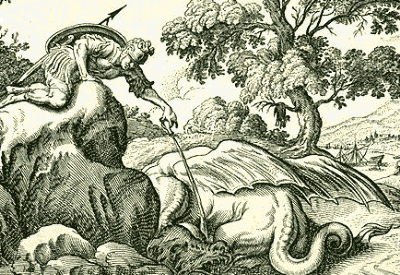
The hero Jason slaying a dragon

Jason and the Argonauts (Civic Museum, Padua, Italy) Lorenzo Costa

The legendary hero Jason fighting skeletons

(Paris, The Louvre) Apulian Krater, 350-340 B.C.
With the golden fleece in hand, Jason returns to Iolkos and is received by Pelias.
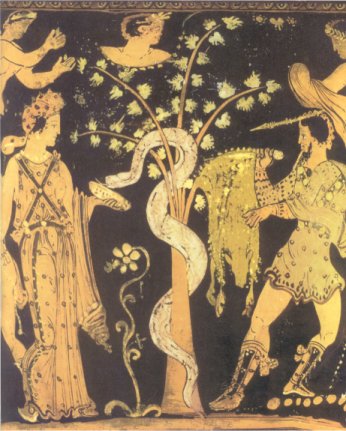
(Naples, Archaeological Museum) 4th c. B.C.
Medea diverts the dragon's attention, offering him a drink to put him to sleep, so that
Jason can remove the golden fleece from a nearby branch.
May the LORD God bless you in the name of St. Jason.
SOURCE(s): - Jason of Tarsus, Wikipedia. (http://en.wikipedia.org/wiki/Jason_of_Tarsus)- Home, Catholic Life, Saints and Angels, St. Jason, Catholic Online (http://www.catholic.org/saints/saint.php?saint_id=293) WikiAnswers, Where in the Bible does the name Jason appear? (wiki.answers.com/Q/Where_in_the_Bible_does_the_name_Jason_appear) Orthodox Church of America, Apostle Jason of the Seventy, or Apostle Jason, of the Seventy and those with him. (http://ocafs.oca.org/FeastSaintsViewer.asp?FSID=100063) Christ Notes > Bible Dictionary > Easton’s Bible Dictionary > Entries Beginning with J > Jason, Easton's Bible Dictionary, Christ Notes. (http://www.christnotes.org/dictionary.php?dict=ebd&id=1980) Greek Orthodox Archdiocese of America, St. Jason. (http://goarch.org/chapel/saints/35)
Labels:
Bible,
Christianity,
Jason,
New Testament,
Saint,
Saint Jason,
Saints
Subscribe to:
Comments (Atom)




